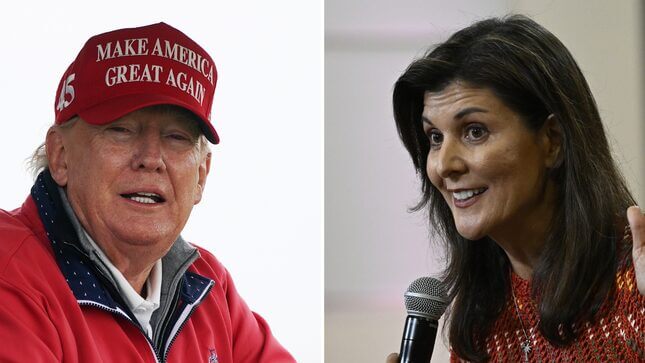Republican Presidential Candidates Are Floundering on How Early to Ban Abortion
Nikki Haley says a national ban isn't "realistic." Donald Trump won't comment. Ron DeSantis is weirdly quiet about the ban he's signed.
AbortionPolitics

We’re being forced into the 2024 presidential election far too early. This is giving political reporters ulcers—and it’s also giving Republican candidates more and more opportunities to flounder about just how much they want to restrict abortion. Though they consistently agree that talking about banning abortion does them no favors (because it is extremely popular), they continue to spout their extreme anti-abortion opinions at nearly every opportunity.
“I think the media has tried to divide [the American public] by saying we have to decide certain weeks,” Republican hopeful Nikki Haley said of abortion ban specifics on Face the Nation on Sunday. “In states, yes. At the federal level, it’s not realistic.” (A classic, noncommittal politician sentence.)
In a direct contrast, Sen. Tim Scott (R-S.C.), who is exploring running for president, went hard out of the gate, saying he supports a 20-week federal abortion ban. “It makes total sense to me,” he told New Hampshire media in April. Hilariously, he walked that back almost immediately.
Former Arkansas Gov. Asa Hutchinson (R) said last year—before Dobbs sent abortion policy back to the states—that the state-level abortion ban he signed into law should be reconsidered to add rape and incest exceptions if Roe was overturned. Well, here we are, and Hutchinson has maintained that he’d support a national abortion ban if it includes some exceptions. (Yes, Hutchinson is running. Right now, he’s the forgotten candidate, but elections are long and everyone seems to get their moment in the spotlight.)
-

-

-

-

-

-

-

-

-

-

-

-

-

-

-

-

-

-

-

-

-

-

-

-

-

-

-

-

-

-

-

-

-

-

-

-

-

-

-

-








































